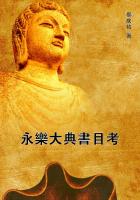At this period, between the years 1866 and 1874, when he unwillingly went abroad for a twelvemonth, Lowell was seen in very few Cambridge houses, and in still fewer Boston houses.He was not an unsocial man, but he was most distinctly not a society man.He loved chiefly the companionship of books, and of men who loved books; but of women generally he had an amusing diffidence; he revered them and honored them, but he would rather not have had them about.This is over-saying it, of course, but the truth is in what I say.There was never a more devoted husband, and he was content to let his devotion to the *** end with that.He especially could not abide difference of opinion in women; he valued their taste, their wit, their humor, but he would have none of their reason.I was by one day when he was arguing a point with one of his nieces, and after it had gone on for some time, and the impartial witness must have owned that she was getting the better of him he closed the controversy by giving her a great kiss, with the words, "You are a very good girl, my dear," and practically putting her out of the room.As to women of the flirtatious type, he did not dislike them; no man, perhaps, does; but he feared them, and he said that with them there was but one way, and that was to run.
I have a notion that at this period Lowell was more freely and fully himself than at any other.The passions and impulses of his younger manhood had mellowed, the sorrows of that time had softened; he could blamelessly live to himself in his affections and his sobered ideals.
His was always a duteous life; but he had pretty well given up ****** man over in his own image, as we all wish some time to do, and then no longer wish it.He fulfilled his obligations to his fellow-men as these sought him out, but he had ceased to seek them.He loved his friends and their love, but he had apparently no desire to enlarge their circle.It was that hour of civic suspense, in which public men seemed still actuated by unselfish aims, and one not essentially a politician might contentedly wait to see what would come of their doing their best.At any rate, without occasionally withholding open criticism or acclaim Lowell waited among his books for the wounds of the war to heal themselves, and the nation to begin her healthfuller and nobler life.With slavery gone, what might not one expect of American democracy!
His life at Elmwood was of an entire simplicity.In the old colonial mansion in which he was born, he dwelt in the embowering leafage, amid the quiet of lawns and garden-plots broken by few noises ruder than those from the elms and the syringas where "The oriole clattered and the cat-bird sang."From the tracks on Brattle Street, came the drowsy tinkle of horse-car bells; and sometimes a funeral trailed its black length past the corner of his grounds, and lost itself from sight under the shadows of the willows that hid Mount Auburn from his study windows.In the winter the deep New England snows kept their purity in the stretch of meadow behind the house, which a double row of pines guarded in a domestic privacy.
All was of a modest dignity within and without the house, which Lowell loved but did not imagine of a manorial presence; and he could not conceal his annoyance with an over-enthusiastic account of his home in which the ****** chiselling of some panels was vaunted as rich wood-carving.There was a graceful staircase, and a good wide hall, from which the dining-room and drawing-room opened by opposite doors; behind the last, in the southwest corner of the house, was his study.
There, literally, he lived during the six or seven years in which I knew him after my coming to Cambridge.Summer and winter he sat there among his books, seldom stirring abroad by day except for a walk, and by night yet more rarely.He went to the monthly mid-day dinner of the Saturday Club in Boston; he was very constant at the fortnightly meetings of his whist-club, because he loved the old friends who formed it; he came always to the Dante suppers at Longfellow's, and he was familiarly in and out at Mr.Norton's, of course.But, otherwise, he kept to his study, except for some rare and almost unwilling absences upon university lecturing at Johns Hopkins or at Cornell.














